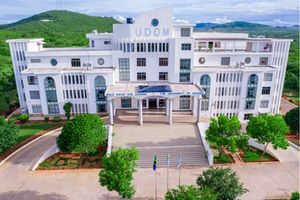CRDB Bank slashes lending rates to farmers and workers

CRDB's managing director Abdulmajid Nsekela
What you need to know:
- The new nine percent lending interest rate on agriculture will stimulate production for the sector that accounts for 26 percent of Tanzania’s gross domestic product (GDP) and which employs 75 percent of the country’s working-age population.
Dar es Salaam. The CRDB Bank Plc is significantly cutting its lending rates to farmers and salaried workers as it seeks to play an increasingly important role in Tanzania’s economic development endeavours.
The bank will now be charging only nine percent (instead of the usual 20 percent) on agricultural loans in a move that promises farmers of an affordable financing option to tweak their operations.
The move comes within months after President Samia Suluhu Hassan’s administration – through the Bank of Tanzania (BoT) - announced several measures that it would undertake in a deliberate effort to create conditions for reducing interest rates on loans and promoting credit intermediation.
Also yesterday, CRDB Bank Plc also slashed lending rates on personal loans for salaried workers to 13 percent from the usual 16 percent.
“We sat down with the BoT late last year and embarked on the implementation of a review of our lending rates and I am happy that we have come up with a solution,” CRDB Bank Plc managing director Abdulmajid Nsekela, said in Dar es Salaam yesterday.
The new nine percent lending interest rate on agriculture will stimulate production for the sector that accounts for 26 percent of Tanzania’s gross domestic product (GDP) and which employs 75 percent of the country’s working-age population.
“Our aim is to stimulate agricultural production by availing affordable loans for the purchase of farm inputs and implements to small scale farmers thereby allowing them to undertake commercial farming,” he said.
Currently, CRDB Bank prides itself for being the lender with the highest amount in loans to the agricultural sector. In total it has extended Sh1.6 trillion in loans to various players within the agricultural value chain.
On loans to salaried workers, Mr Nsekela said the bank has been undertaking reviews on lending rates routinely in an effort to help them (workers) to meet their financial obligations and economic goals.
“With the reviews, we seek to help them so that they can achieve their personal goals which we believe, helps to boost their effectiveness in their official undertakings,” he said. He urged salaried employees to utilise the opportunity to their advantage by initiating various income-generating projects for the general of their economic wellbeing.
He said it was true that high lending interest rates have been discouraging some businesspeople from going for bank loans and thus missing a chance of acquiring the much-needed capital boost to improve their businesses.
“The new rates are therefore an opportunity for them to improve their businesses. Besides, we have seen that it is President Samia Suluhu Hassan’s vision to see a rise in the number of Tanzanians who actively participate in the country’s economic growth undertakings,” said Mr Nsekela.
In July last year, the BoT issued new measures that were intended to create conditions for reducing interest rates on loans and promoting credit intermediation. Under the measures, the BoT would introduce of a Sh1 trillion special loan fund valued for banks and other financial institutions to access money for lending to the private sector.
Money from the fund will be accessed by commercial banks and financial institutions at an interest rate of three percent per annum for pre-financing or refinancing of new loans to the private sector, the BoT Governor Prof Florens Luoga, said in July last year.
“A bank wishing to access the special loan facility shall be required to charge an interest rate not exceeding 10 percent per annum on loan extended to the private sector. This measure intends to increase liquidity to banks and reduce lending rates,” he said.
The BoT also announced a significant relief to commercial banks that extend credit to the agriculture sector by reducing their statutory minimum reserve requirement (SMR), equivalent to the loan extended.
Under the arrangement, a bank shall be required to submit evidence of lending to agriculture at an interest rate not exceeding 10 percent per annum.
The BoT also designed a measure that intends to contribute to lowering costs of funds to banks, thus helping lending rate reduction, by limiting the interest rates paid on mobile money trust accounts.





